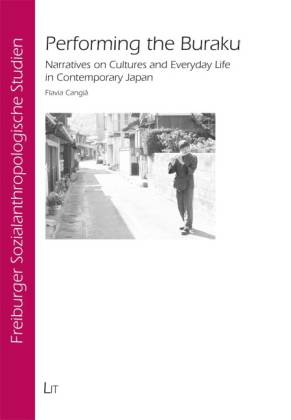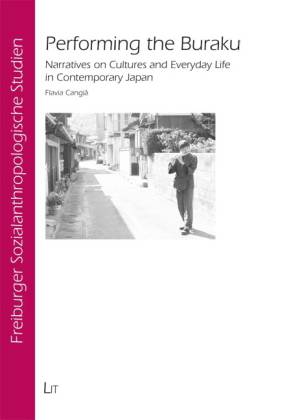
- Afhalen na 1 uur in een winkel met voorraad
- Gratis thuislevering in België vanaf € 30
- Ruim aanbod met 7 miljoen producten
- Afhalen na 1 uur in een winkel met voorraad
- Gratis thuislevering in België vanaf € 30
- Ruim aanbod met 7 miljoen producten
Zoeken
€ 39,45
+ 78 punten
Omschrijving
People labelled as "Buraku-min" in Japan are usually described as the descendants of pre-modern occupational groups who were engaged in socially polluting tasks like leather work, meat-packing, street entertainment, and drum-making. "Performing the Buraku" explores representations of the "buraku" issue by community and local activism in contemporary Japan, with a special focus on performances and museum exhibitions. In particular, the book is the result of an ethnographic work conducted in Kinegawa and Naniwa leather towns, respectively in Tokyo and Osaka, and with the Monkey Dance Company performers. Flavia Cangià has a Ph.D. in Social Anthropology, at the University of Fribourg (Switzerland), with a specialization on the buraku minority in Japan. She is currently Postdoctoral Research Fellow at the Institute of Cognitive Sciences and Technologies of the Italian National Research Council (CNR) where she conducts research within the project "Migrazioni" of the Department of Social Sciences and Humanities - Cultural Heritage (CNR)
Specificaties
Betrokkenen
- Auteur(s):
- Uitgeverij:
Inhoud
- Aantal bladzijden:
- 280
- Taal:
- Engels
- Reeks:
- Reeksnummer:
- nr. 37
Eigenschappen
- Productcode (EAN):
- 9783643801531
- Uitvoering:
- Paperback
- Afmetingen:
- 164 mm x 233 mm
- Gewicht:
- 502 g

Alleen bij Standaard Boekhandel
+ 78 punten op je klantenkaart van Standaard Boekhandel
Beoordelingen
We publiceren alleen reviews die voldoen aan de voorwaarden voor reviews. Bekijk onze voorwaarden voor reviews.







